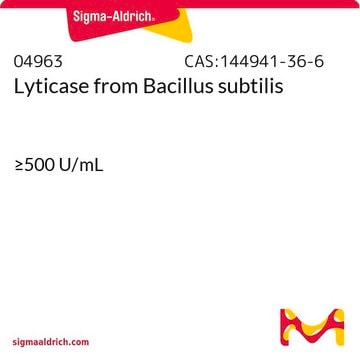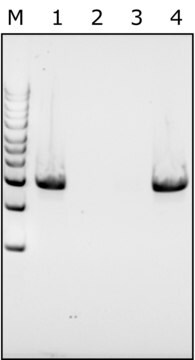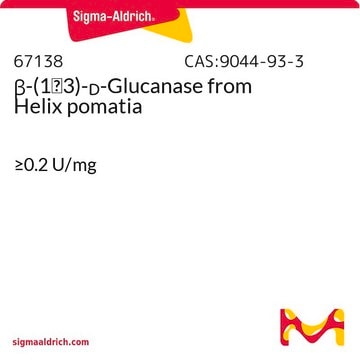SRE0018
Lyticase from Arthrobacter Luteus
Suitable for manufacturing of diagnostic kits and reagents, lyophilized powder, ≥2000 units/mg protein
Synonym(s):
Lyticase from Arthrobacter luteus
About This Item
Recommended Products
biological source
bacterial (Arthrobacter luteus)
Quality Level
form
lyophilized powder
specific activity
≥2000 units/mg protein
composition
Protein, ≥20% biuret
application(s)
diagnostic assay manufacturing
shipped in
wet ice
storage temp.
−20°C
Looking for similar products? Visit Product Comparison Guide
Biochem/physiol Actions
Unit Definition
Other Notes
Signal Word
Danger
Hazard Statements
Precautionary Statements
Hazard Classifications
Resp. Sens. 1
Storage Class Code
11 - Combustible Solids
WGK
WGK 3
Flash Point(F)
Not applicable
Flash Point(C)
Not applicable
Choose from one of the most recent versions:
Certificates of Analysis (COA)
Don't see the Right Version?
If you require a particular version, you can look up a specific certificate by the Lot or Batch number.
Already Own This Product?
Find documentation for the products that you have recently purchased in the Document Library.
Customers Also Viewed
Protocols
This procedure may be used for the determination of Lyticase activity using Baker’s yeast as the substrate.
Our team of scientists has experience in all areas of research including Life Science, Material Science, Chemical Synthesis, Chromatography, Analytical and many others.
Contact Technical Service










